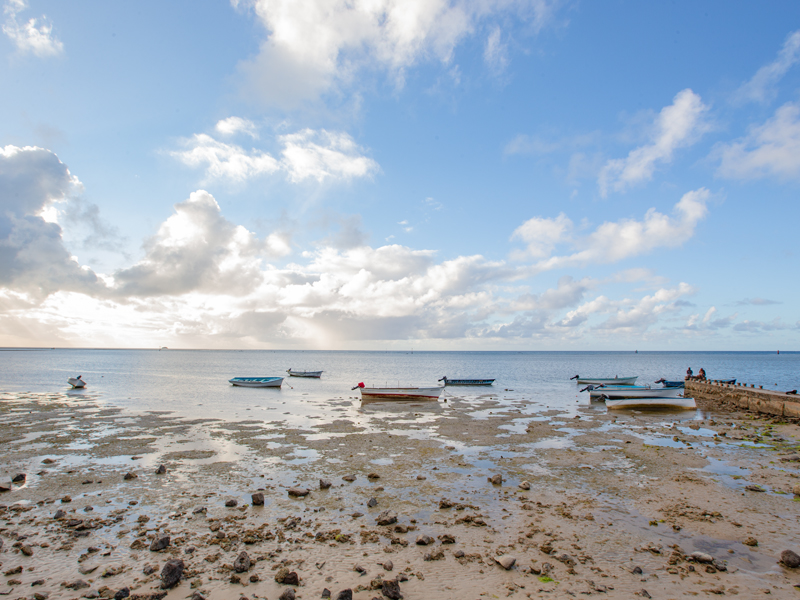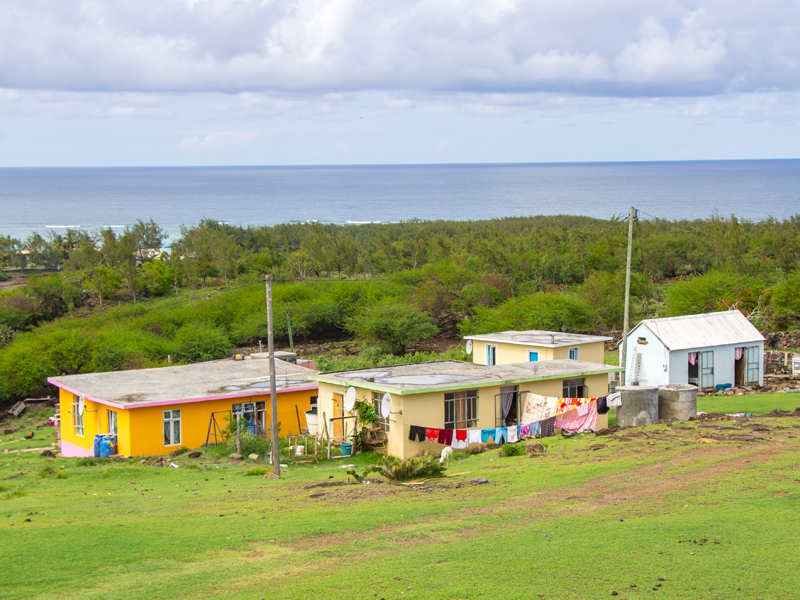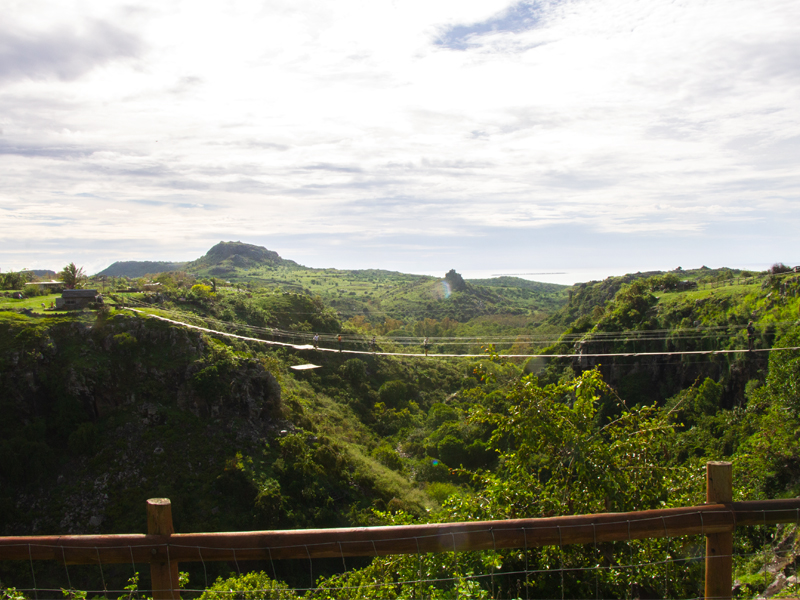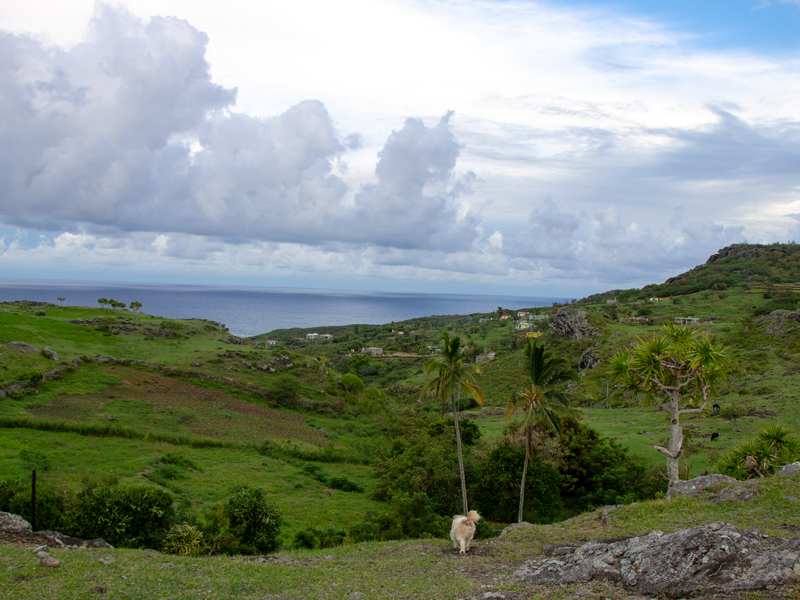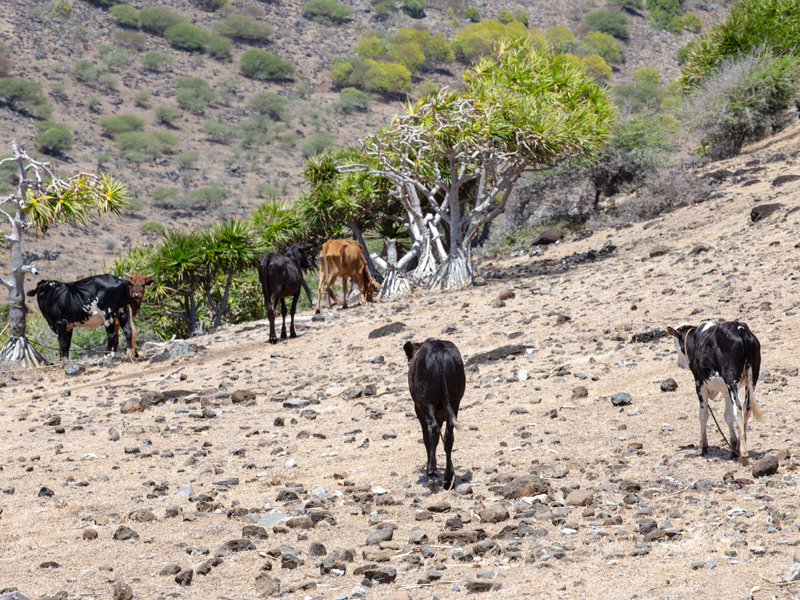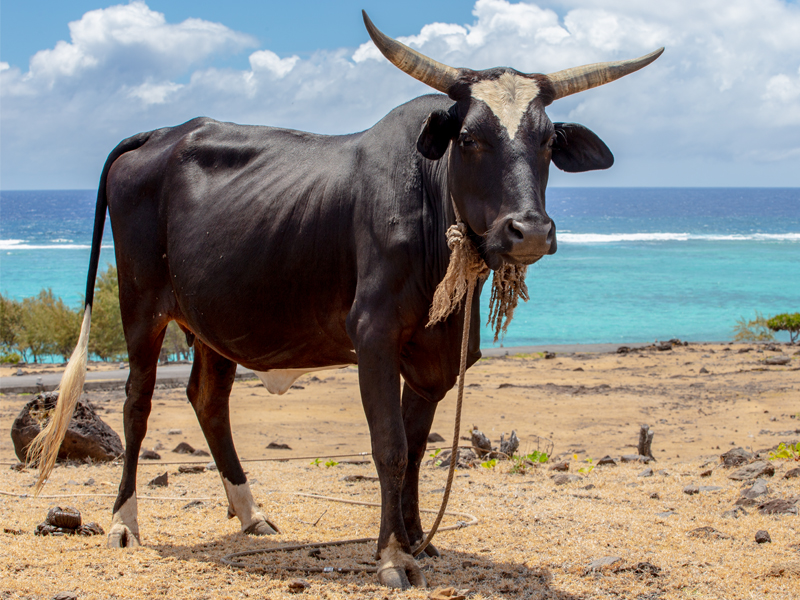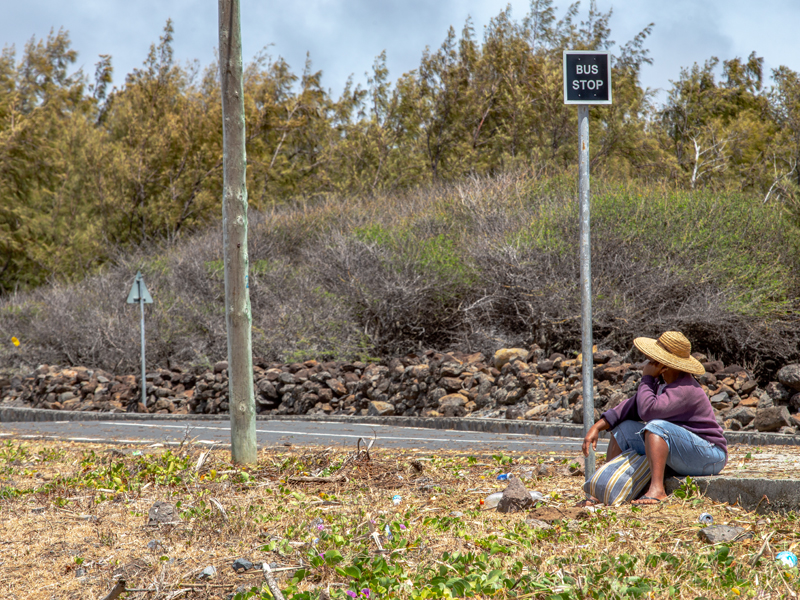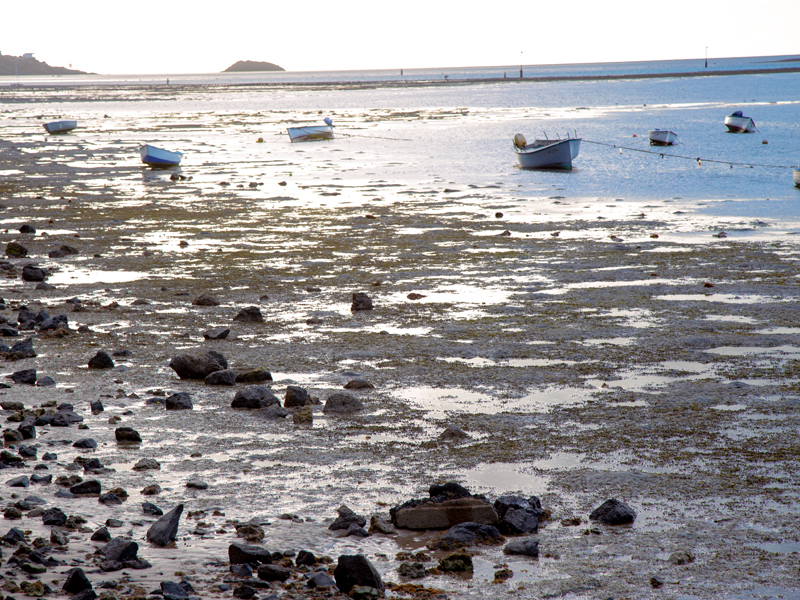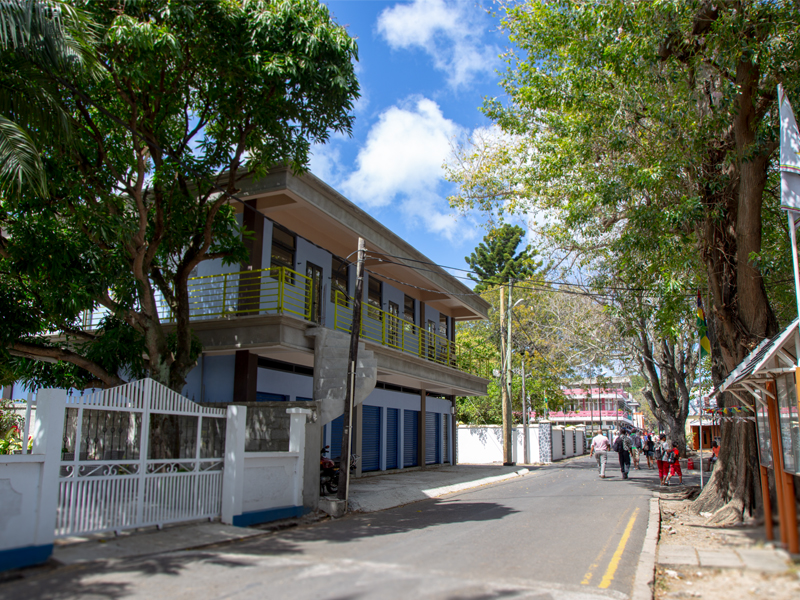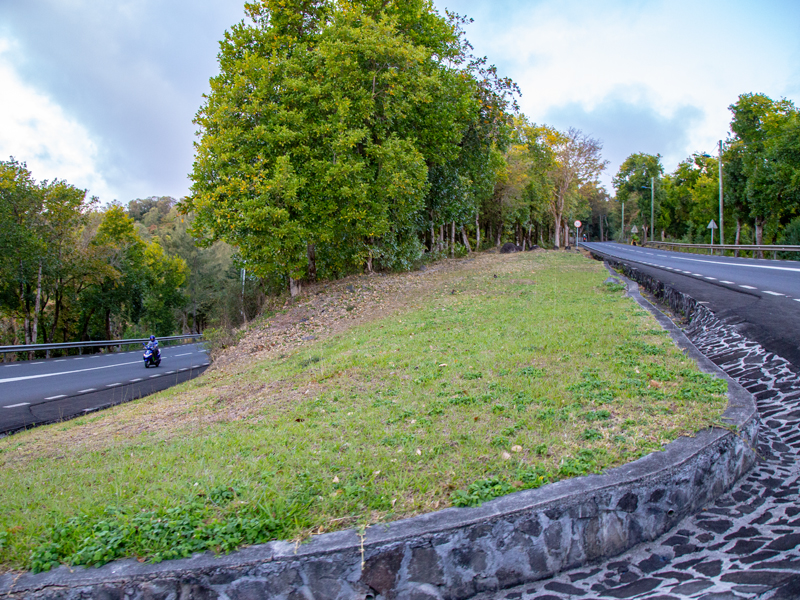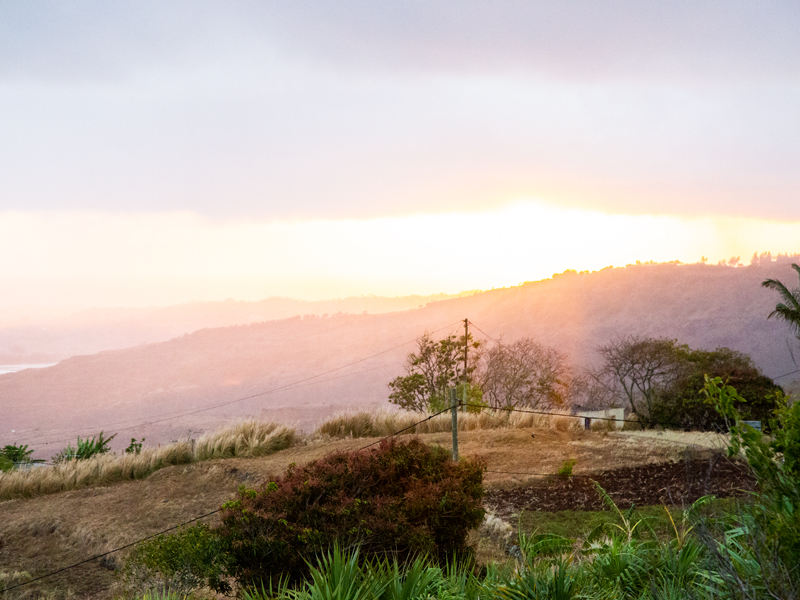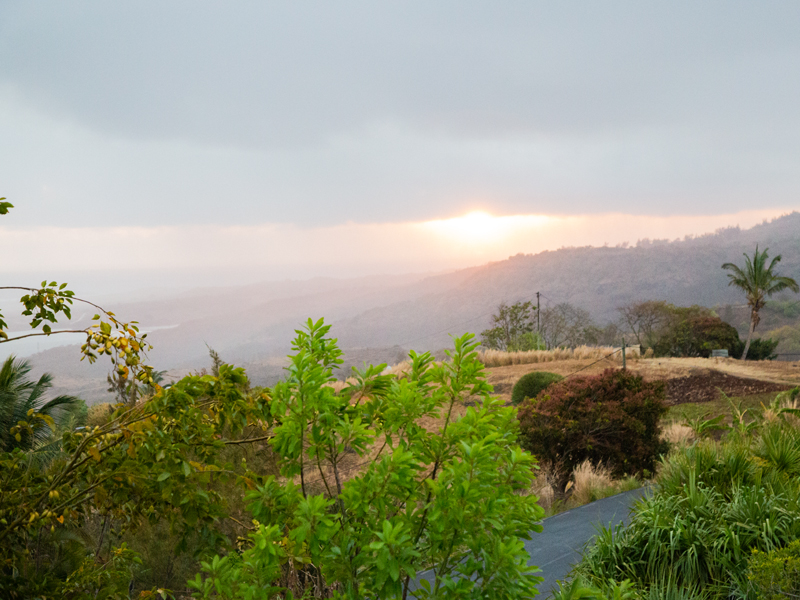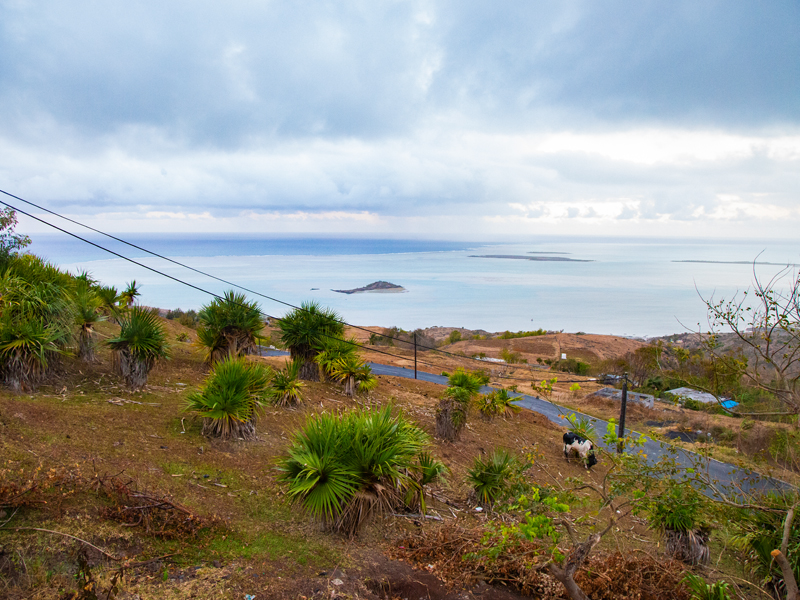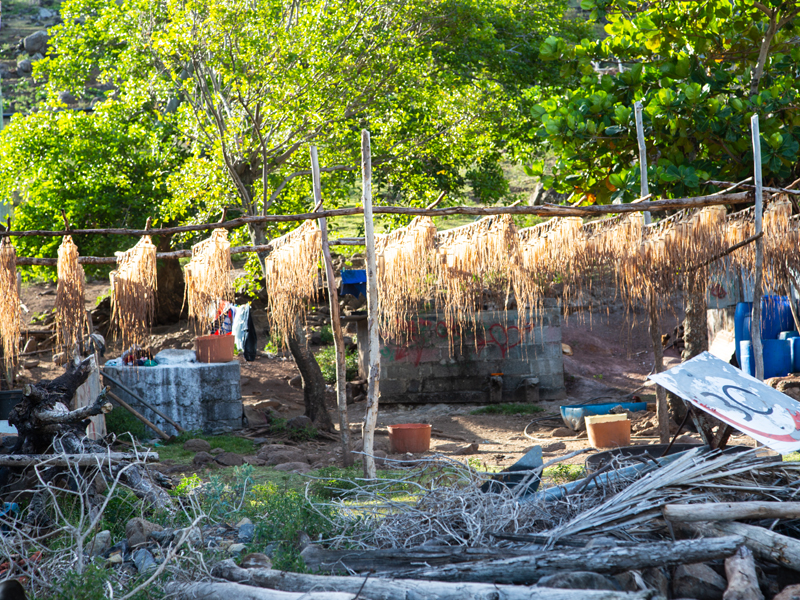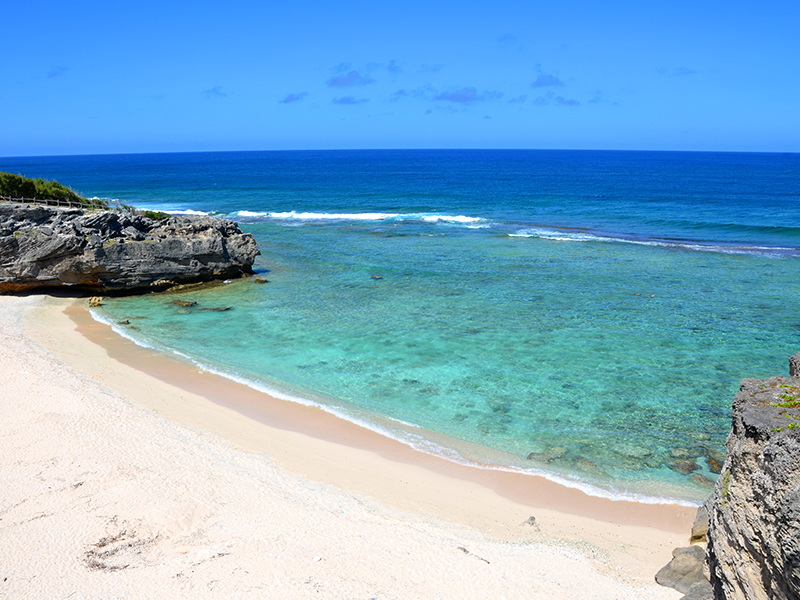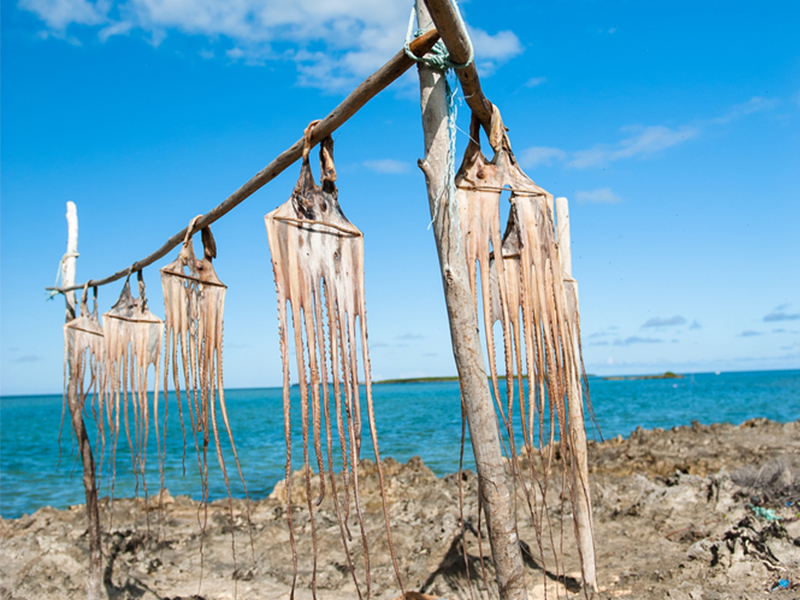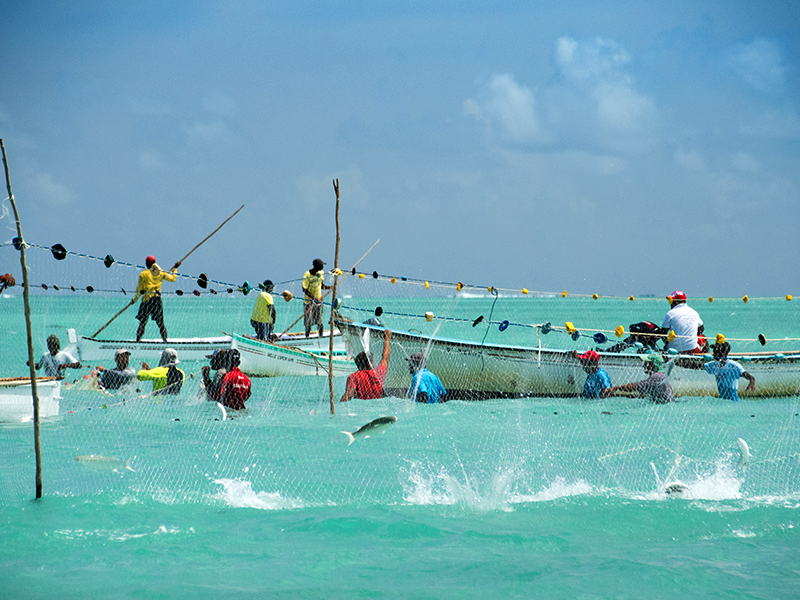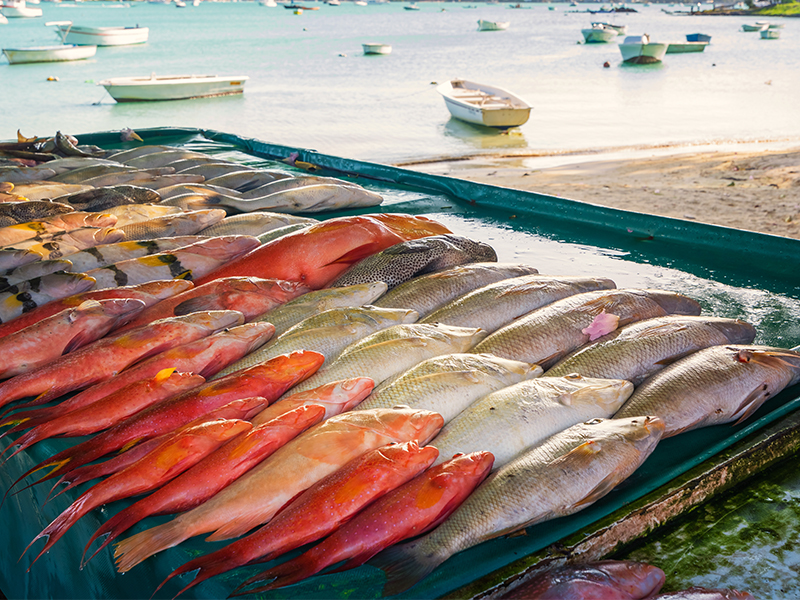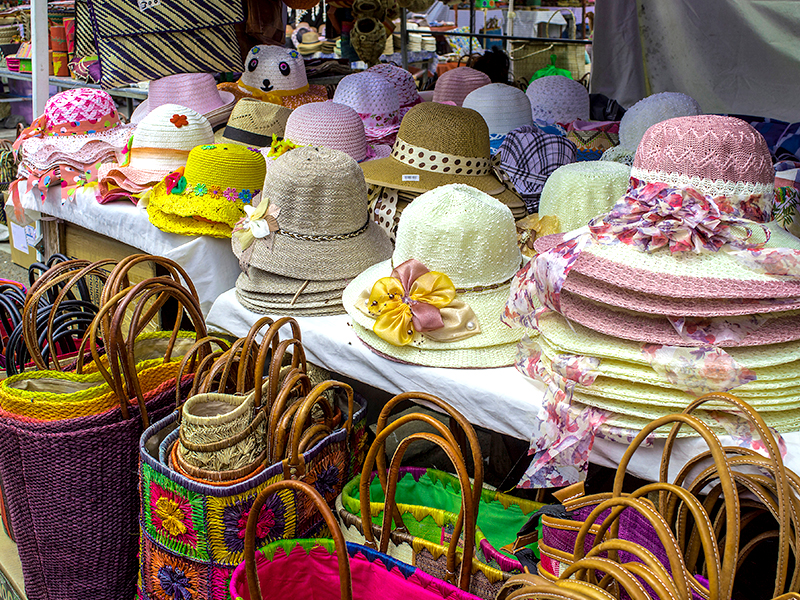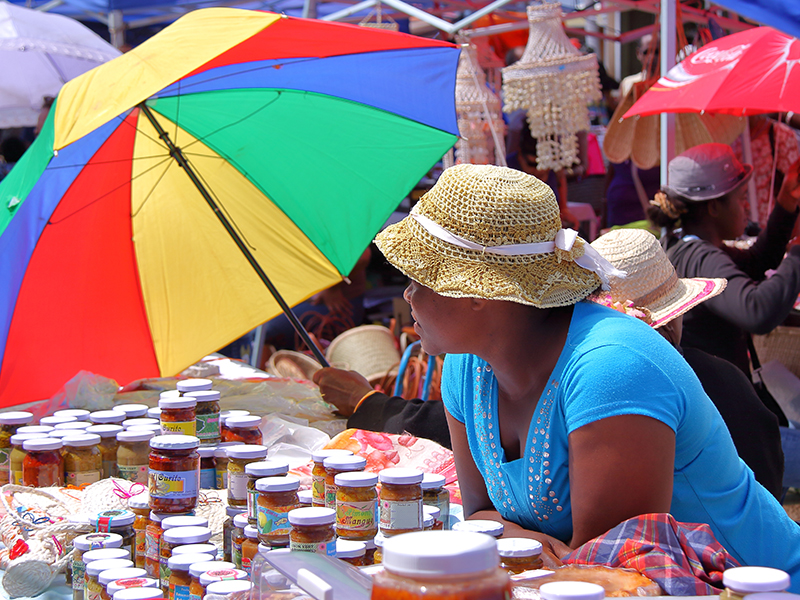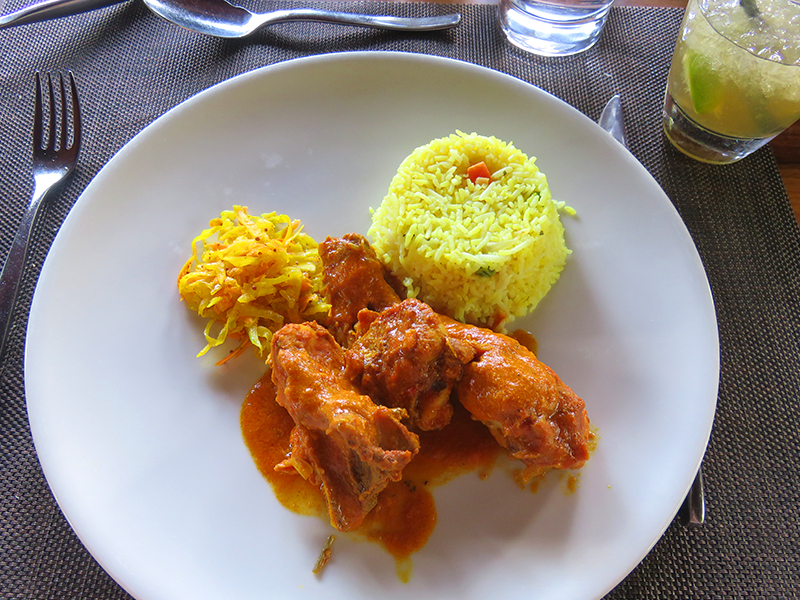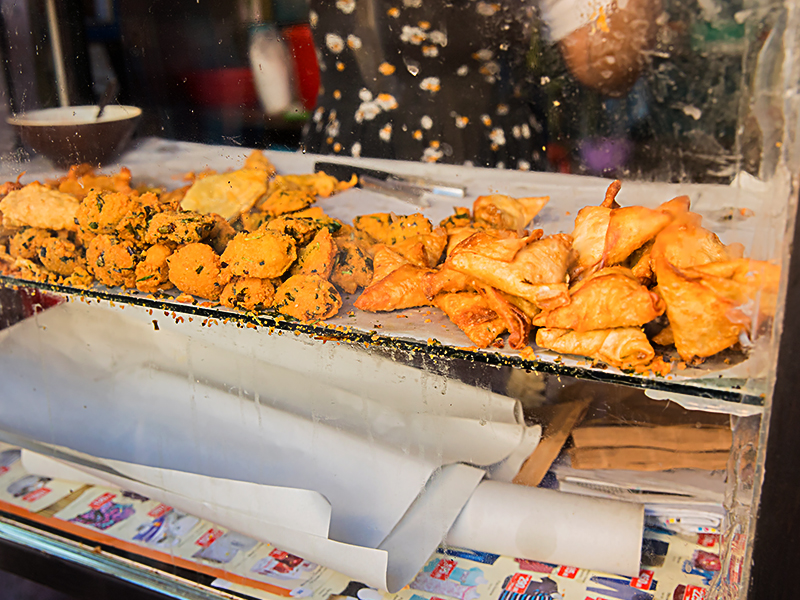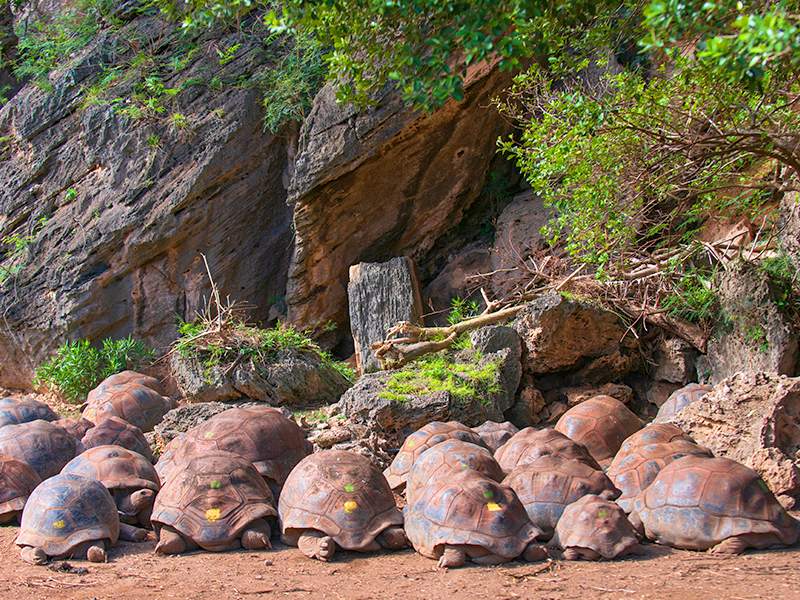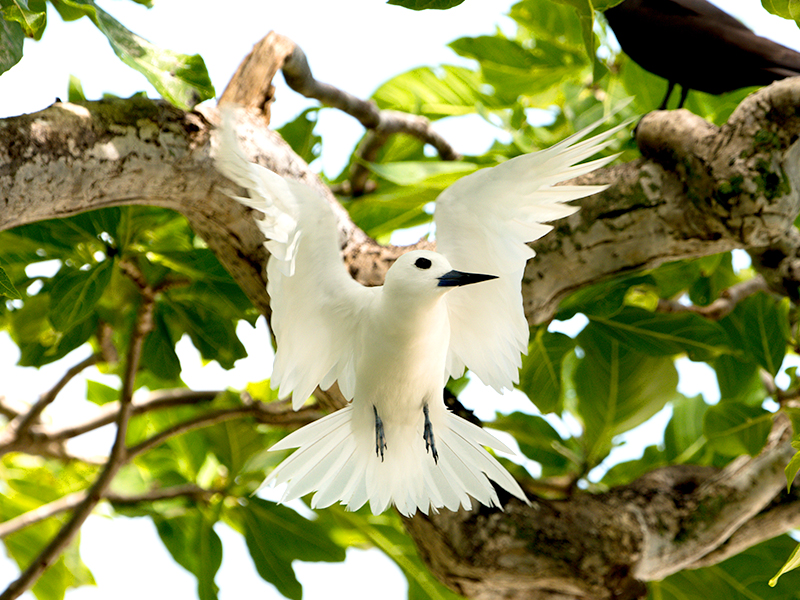About Rodrigues Island
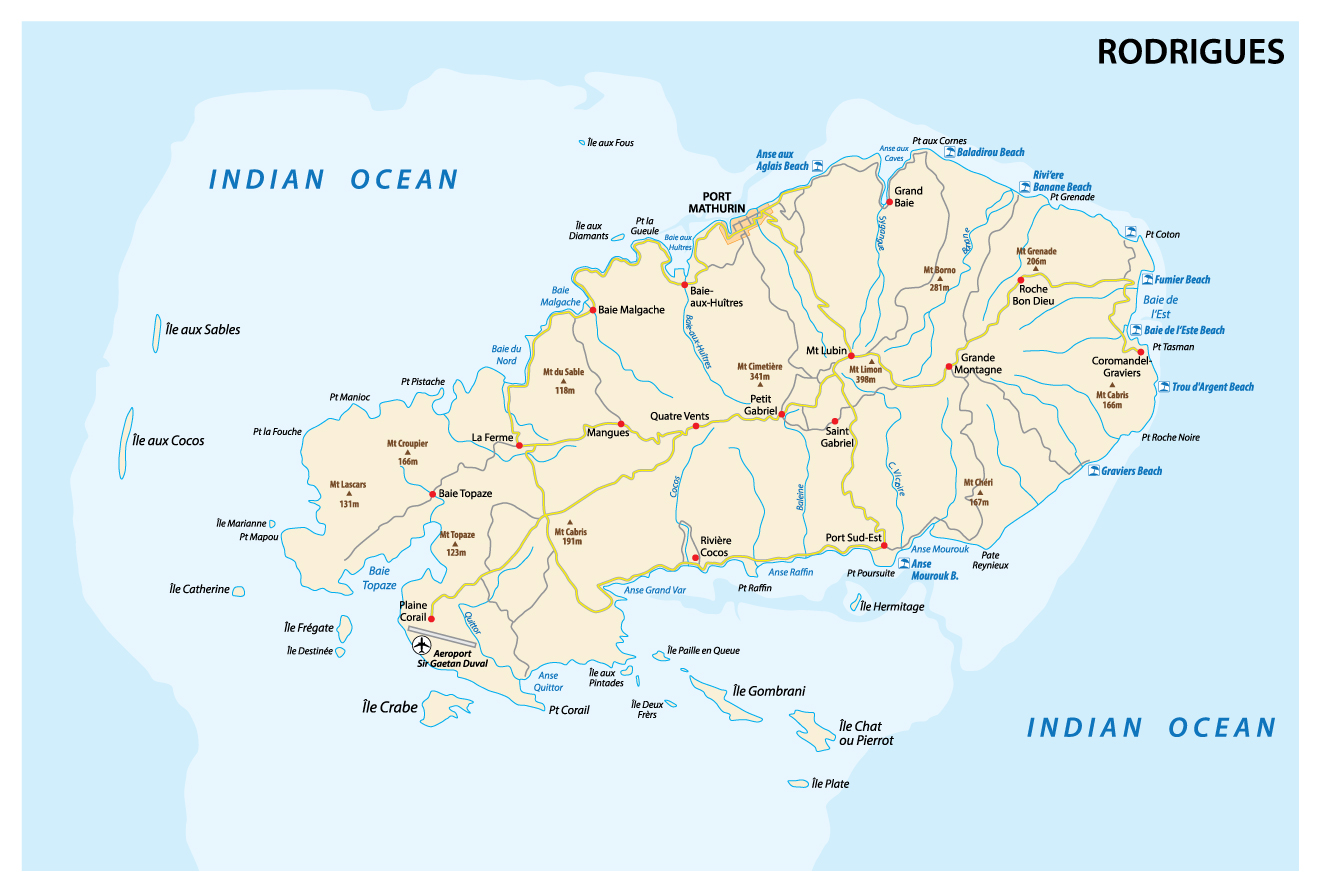
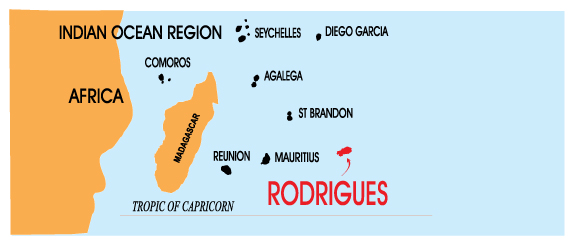
Most people do not know much about the Indian Ocean or the Island of Rodrigues - or even where it is.
We hope the Map will give an idea at least of where we are in the Indian Ocean. Rodrigues has a fascinating past.
In 1685, when the Edict of Nantes was revoked in France by Louis XIV, Protestants in France were deprived of their rights to worship freely and were persecuted.
Many fled the country to Holland, Prussia, Switzerland and Great Britain. They were the "Huguenots" and many people in Britain today who have French surnames trace their ancestry back to these
Huguenot refugees. One Group planned to find a remote uninhabited Island and colonise it.
The project was called Project Eden and the aim was to set up a "Utopia" of protestant freedom there.
In 1691, a small advance guard of 8 men set out from Holland in the 25 ton Frigate Hirondelle to colonise Rodrigues.
This tiny sailing ship was Mastered by one Antoine Valleau, and the leader of the Group was one Francois Leguat .
Their story and all the fascinating History of Rodrigues can be found in a rare and precious book "The Island of Rodrigues" by Alfred North Coombes,
and is available for those interested from the CARECO Shop in Port Mathurin. That first colonisation lasted only 2 years and the disappointed group left the island
in a home made boat in 1693, and project Eden was abandoned.
To some British people the Island is more well known through the Cable & Wireless station there which was a relay station on the cable communication between Europe and Australia.
In 1874 astrological observations of the "Transit of Venus" were made by Abbe Pingre among others, at Pointe Venus, Port Mathurin, and as a matter of interest the next "Transit"
was held on the 8th June 2004., and distinguished observers from all over the world came on the island for that event.
Today Rodrigues is an "Autonomous Region" of the Republic of Mauritius. Whereas Mauritius is known for its economic development and is often called
the economic "tiger" of the Indian Ocean,
economic developments in Rodrigues are
very much behind those in the Island of Mauritius, and thus the social situation is much different.
A recent report on Poverty in Rodrigues had this to say. "of even greater concern is the percentage of "ultra poor"
in the Rodrigues sample.
More than one in five individuals in the Rodrigues Sample can be classified as
ultra poor. Not only are residents of Rodrigues more likely to be poorer than
elsewhere,
but the poor are in deeper poverty than the poor in the rest of the country.
Of great concern is that one in six children in the Rodrigues sample is ultra-poor. Poverty and unemployment are also closely linked."
(Extracted from the E.U. Survey Report 1995 on the Social Integration of Vulnerable Groups).
There are almost 1000 people who are registered as having a disability and
receive a small Government Pension. However because Rodrigues has not developed a viable economy there are almost no job opportunities for the disabled, thus they have no
chance of a self sustaining working life.
Activities in Rodrigues are as follows:
Employment in Government Departments. This places a heavy burden on the National Budget.
Many of these jobs are non productive and are concerned only with administration and infrastructure.
The other two activities are Agriculture & Fishing. Unfortunately it is reported that the livestock population is too heavy for the area of land and
is a cause of erosion and environmental deterioration. Most of the fishing is done in the lagoon and is reported to have adverse effects on the lagoon marine life.
Some handicraft making is practiced but without advice and developmental help, little is exported and design is poor.
Competition from imported handicrafts from Africa and Madagascar is fierce, and increasing.
Tourism has started to develop and this activity has the advantage of positive repercussions on local entrepreneurs. Hotel and catering,
Guided Tours, sale of souvenirs, preservation of folklore, farming, honey production are among the most promising areas of activity.
Population is mostly of pure African origin, but a small mixed race community exists - descendants of early colonial European settlers there is also
a Chinese resident community on the island and some Muslims who are mostly traders. The principle religious denomination is Roman Catholic, but there is an established Anglican community
Most Rodriguans live on isolated plots, scattered around the island, which they do not own but are leased from the Government.
Education Standards
Although there is improvement many children do not succeed academically and literacy rate is thought to be about 30%. Women have reasonable status and many women's organisations are active on the island, even though the basic trend is for a male dominated society.
Income
Since 2018 the Minimum wage legislation introduced by the Mauritian government means that all people formally employed receive the Minimum wage of
9,000 rps per month (i.e in 2019) as well as all Public holidays, and a bonus of one months wages at the end of the year. Holiday and sick leaves are also paid as well
as paternal and maternal leaves. There is also a system for the payment of ‘negative’ income tax.
Cost of living is high as most essentials have to be imported by Sea from Mauritius.
Housing is poor. Coral brick structures and corrugated iron huts predominate although this is changing and many concrete ‘cyclone proof ‘
houses are now being built by a slowly increasing middle class .
Total population is around 48,000
The introduction of Regional Autonomy in 2002 has started many changes in the administration of the island and hopefully a speedier and
more efficient decision making and actioning process of local projects.
The situation for the Disabled
There are no Government - run Special Schools for children with disabilities. Pre-primary education is available and subsidised by
Government after the age of four. Primary Education is provided free for all children. Secondary College Education is available
free for children who pass the primary school leaving examinations.
There are various training schemes and vocational training institutions for school leavers.
Disabled persons are officially included in these schemes but no special provision is made for them.
There is also the Rodrigues Association for the Disabled, with a Centre at Malabar.
The "Association pour des Handicapes Mentaux de l'Ile Rodrigues at Citronelle" and The "Association des Aveugles" at Malabar. Each of these organisations has a programme of activities.
The GPL Centre at Camp du Roi, as well as the Rodrigues Association for the Disabled at Malabar and the Edycs Centre for children with Epilepsy at
La Ferme are registered with the Commission for Education as Special Needs Schools and receive support and Grant in aid from the government.
All in all, although progress has been made, there is much more to be done to help improve the situation for people with disabilities on Rodrigues.

